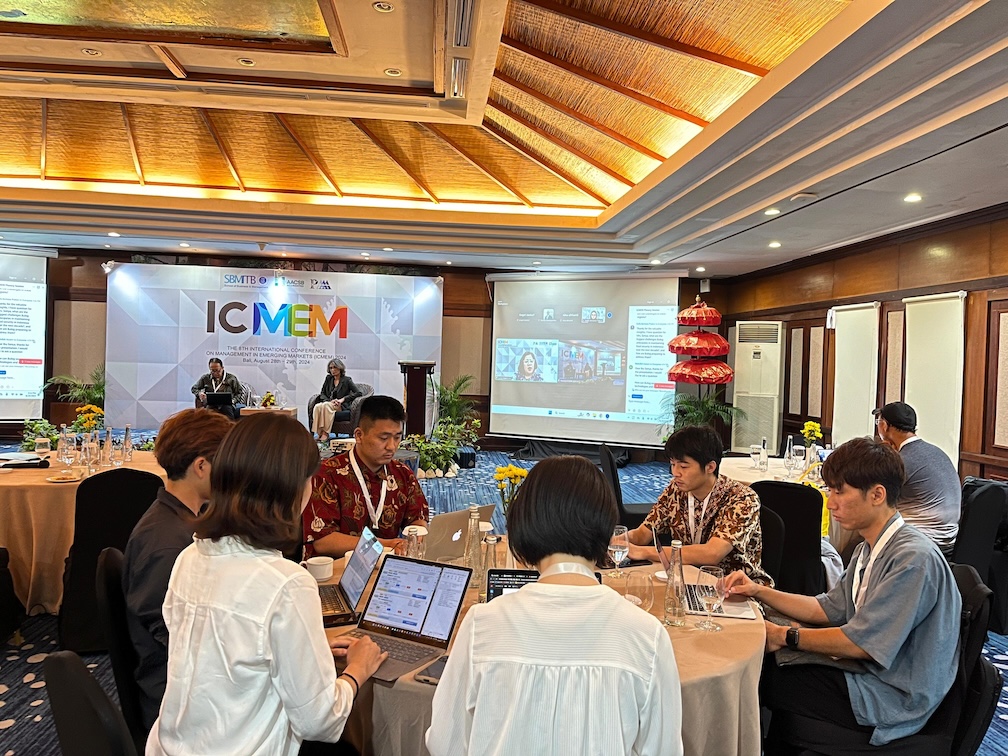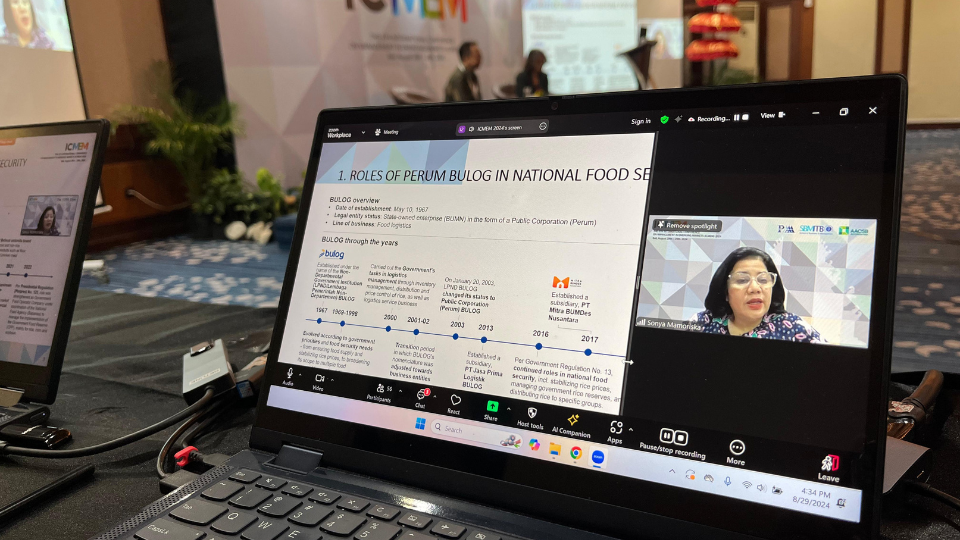Director of Transformation and Institutional Relations at Perum BULOG, Sonya Mamoriska Harahap, shared that BULOG has integrated ESG (Environmental, Social, and Governance) principles into every aspect of its business operations. The company categorizes the ESG approach into three main pillars: environmental, social, and corporate governance.
Regarding environmental initiatives, Mamoriska explained that BULOG has taken several steps, including modernizing commodity warehousing to minimize waste and maintain food quality.
“In 2022, we prioritized the modernization of our commodity warehousing to reduce waste caused by damage and quality degradation, particularly in response to fluctuating food inflation and the need to reduce food waste,” Sonya stated during a plenary session at the International Conference on Management in Emerging Markets (ICMEM) 2024. The event, hosted by the School of Business and Management, the Bandung Institute of Technology, focused on the theme of “Environmental, Social, and Governance (ESG)” and took place on Thursday (29/8). “In 2024, we are targeting the management of approximately 49 million metric tons of food waste,” she added.
On the social front, Mamoriska highlighted BULOG’s commitment to ensuring the availability, affordability, and stability of essential food items such as rice, corn, and soybeans. The company also continues to advance gender equality, with women comprising 27 percent of BULOG’s workforce.
“This number is steadily increasing, reflecting our dedication to promoting gender equality,” Mamoriska noted.
BULOG has also launched programs aimed at enhancing farmer welfare and business sustainability, which are expected to boost both productivity and the well-being of farmers. However, Sonya emphasized that strong corporate governance is critical to ensuring long-term sustainability.
“We adhere to international standards such as ISO 31000 for risk management and ISO 9001 for quality management,” she explained.
Additionally, BULOG has adopted an internationally recognized whistleblowing system and an anti-bribery management system certified by ISO 37001.
Despite these achievements, Mamoriska acknowledged the challenges BULOG faces in fully implementing ESG principles, particularly in areas like data availability and standardization. These challenges complicate the management and evaluation of ESG performance and increase regulatory pressure.
Nonetheless, BULOG remains committed to fostering an ESG-focused culture and collaborating with stakeholders to enhance technology standardization and integration. Although still in the early stages, BULOG is dedicated to ensuring that its business practices create long-term value and ensure food security for both farmers and consumers.
“Our mission is to become a trusted leader in the food supply chain, guided by three core values: availability, affordability, and stability. We aim to position ourselves as a food supply chain leader, not merely a logistics company,” said Sonya. “We recognize that ESG is not just about regulatory compliance, but about how we can contribute to Indonesia’s Sustainable Development Goals (SDGs).”





